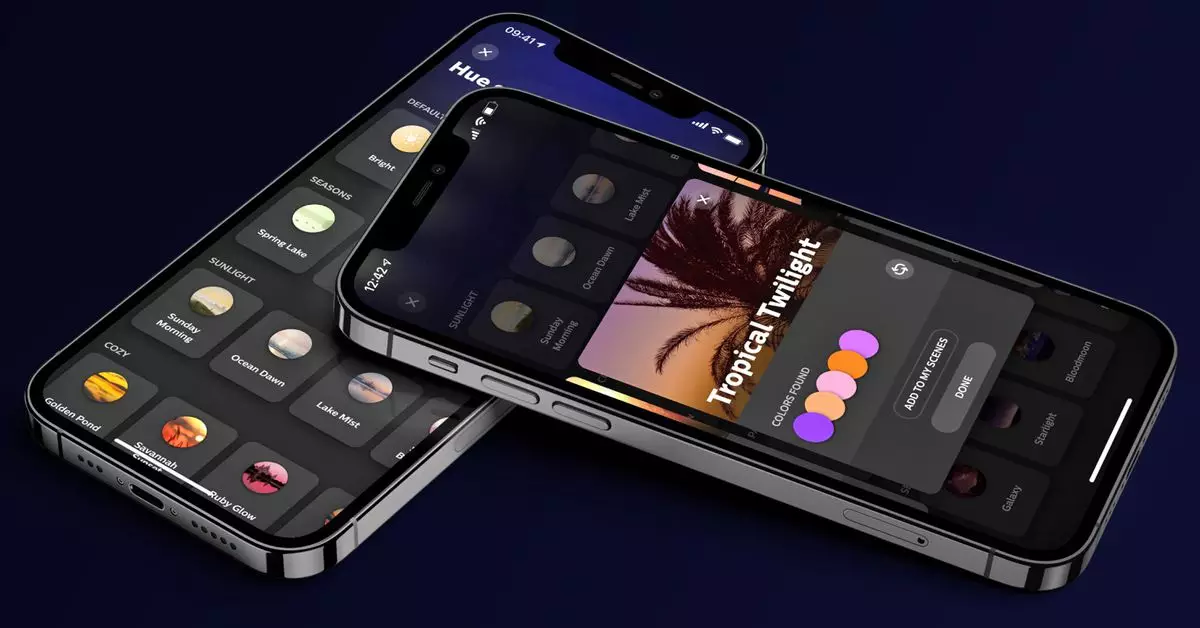On Tuesday, Philips Hue made headlines by unveiling a new feature that allows users to design their own lighting environments through an AI-powered assistant. This integration of artificial intelligence marks a significant evolution in how smart home devices interact with users, opening doors to unprecedented customization and ease of use. With minimal effort, users can declare their desired ambiance by inputting commands or using voice prompts, such as “Create a candlelit dinner atmosphere,” which the AI then translates into a unique lighting scene tailored to the user’s request.
The new feature enhances user experience significantly by providing options to customize lighting according to various parameters, including the occasion, mood, and aesthetic preferences. The ability to generate personalized scenes efficiently is a game-changer for users looking to adjust their environments without extensive manual programming. This level of personalization asserts Philips Hue’s commitment to creating adaptable solutions that resonate with the real-life usage patterns of everyday customers.
Despite Philips Hue positioning itself as a standout player in the market, it is not alone. Other companies, such as Govee and Nanoleaf, have already rolled out similar AI-driven capabilities. For example, Govee’s AI Lighting Bot serves a comparable purpose, providing dynamic lighting options in response to verbal commands. In contrast, Nanoleaf’s offerings, while innovative, are limited to recognition of shorter typed phrases. Philips Hue’s approach, with its emphasis on both voice and text interactions, sets it apart by supplying a more versatile platform for lighting control.
One of the most significant advantages of the new AI assistant is its compatibility across the entire range of Philips Hue products. This broad integration ensures that all existing users can benefit from the enhancements without the need for additional hardware or upgrades. While specifics regarding the release date have yet to be fully detailed, the rollout is projected for the first quarter of 2025, building anticipation among the user base and the broader market.
Philips Hue’s innovation didn’t stop with the AI assistant. The company has also announced that its Hue Sync TV app is now compatible with LG televisions, providing better integration of lighting effects with on-screen content. Furthermore, consumers can now experience the newly launched Philips Hue Datura ceiling light in the U.S., starting at a retail price of $299.99. This product’s striking design features independently controllable lights and customizable color effects, reinforcing Philips Hue’s commitment to style and innovation in home lighting.
As Philips Hue ventures into the realm of AI-powered home lighting, the implications for everyday use are profound. The combination of ease, adaptability, and customization meets the growing consumer demand for smart home technologies that simplify life while offering luxury experiences. As the year progresses and the rollout approaches, enthusiasts and general consumers alike will keenly await how this innovation transforms their home environments.

